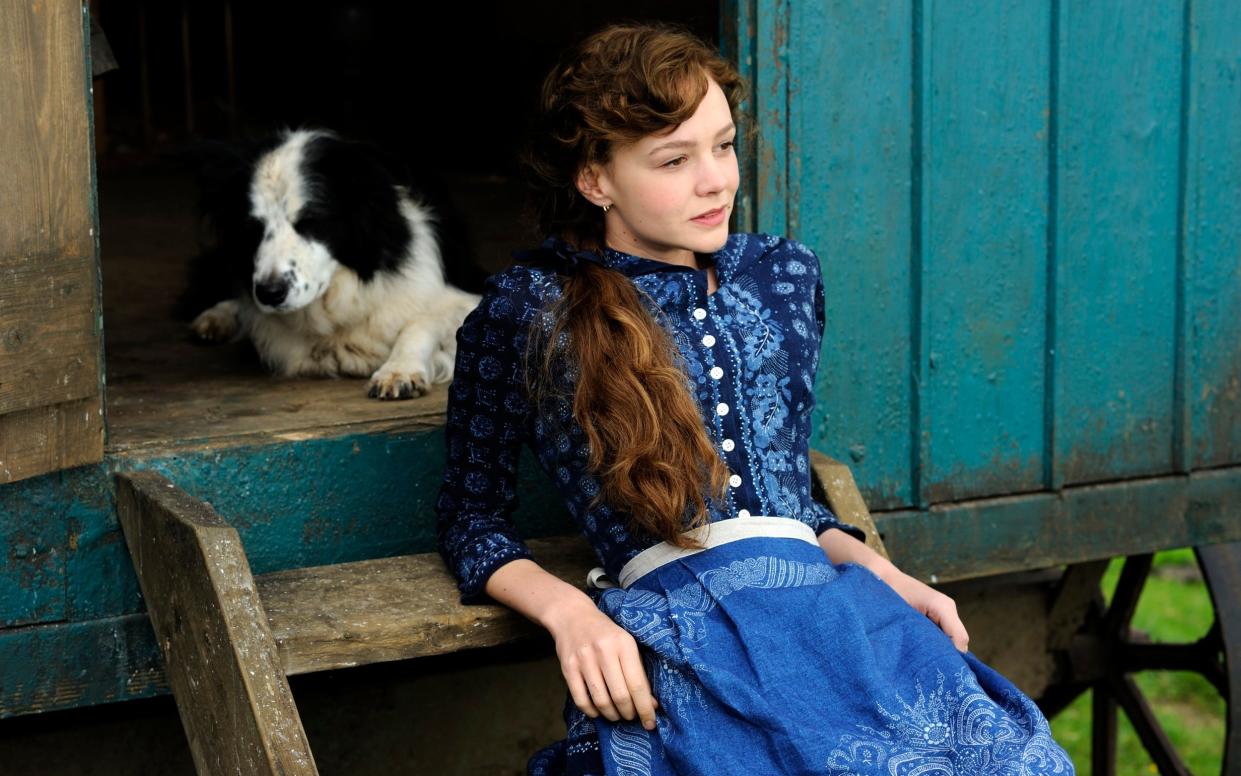Thomas Hardy’s ‘cruel’ novel given a trigger warning

- Oops!Something went wrong.Please try again later.
Thomas Hardy’s work now comes with a trigger warning, as students are advised that the novelist depicts “the cruelty of nature”.
The writer renowned for depicting the harsh realities of English rural life and the vagaries of fate now requires a cautionary note, according to academics at the University of Warwick.
A trigger warning now alerts students that Hardy depicts the “cruelty of nature” and of “rural life” in Far from the Madding Crowd, a novel which contains passages describing dead and dying sheep.
A warning issued by the English department at Warwick and seen by The Telegraph states: “Far from the Madding Crowd: Contains some potentially rather upsetting scenes concerning the cruelty of nature and the rural life.”
Hardy (1840-1928) was famed for depicting rural communities in his fictional region of Wessex and the indifference of nature to the schemes of his characters. In Far from the Madding Crowd, this is typified by the character Gabriel Oak who struggles to make money from sheep farming.
The 1874 book describes his flock being driven off a cliff, leaving corpses strewn in a ditch – an incident that leads him to shoot the overzealous sheepdog that provoked their fatal stampede. Later in the novel, Oak operates on sheep to relieve their bloating.

Far from the Madding Crowd – which has been adapted for the screen multiple times, including a 2015 film starring Carrie Mulligan in the lead role of heroine Bathsheba Everdene – also contains human characters meeting untimely ends.
The warning given for the novel is one of a number of cautionary notes issued for work across departments at the University of Warwick, which has recently rebranded “trigger warnings” as “content notes” over fears the word “trigger” could be considered too “provocative”.
Warnings have been issued by a number of universities in order to brace students for emotionally distressing material, and recent examples of potentially upsetting literary works have included Old English epic Beowulf and accounts of medieval miracles.
Assessing literature for its risk rather than its artistic merits has led to criticism from some academics, with Prof Frank Furedi, emeritus professor at the University of Kent, saying: “Literature was not invented to be a kind of 21st-century therapy.
“If you read a Hardy novel, what you find is a compelling account of authentic rural life, and the struggle for existence. What we encounter in the pages of The Mayor of Casterbridge or Tess of the d’Urbervilles can be tragic, but it is moving and beautiful.
“If we approach literature in a spirit of discovery, rather than as a patient who needs constant care and supervision to avoid upset, then we will get something out of it.
“But putting a trigger warning on a book by Hardy, you are treating it as a health risk rather than a novel, and treating students like patients. This is increasingly happening to the corpus of English literature.”
Hardy has been a fixture of syllabi at British schools, with work like The Return of the Native often taught to teenagers at A-level, along with his often bleak later poetry.
His native country of Dorset has profited from Hardy-related tourism, with fans visiting his childhood home and later residence of Max Gate, now a National Trust property.

